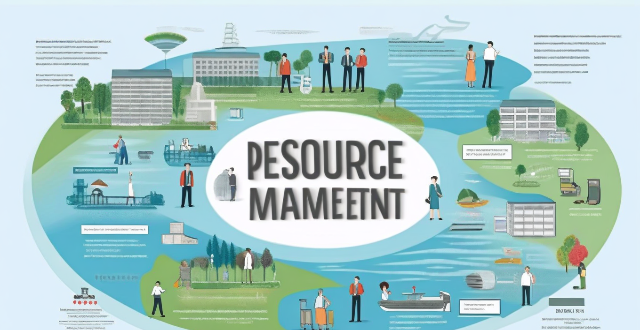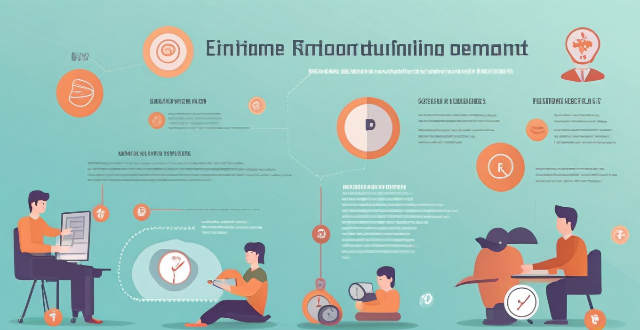Care Legal

What documents are typically included in an estate plan ?
An estate plan is a collection of legal documents that outline how an individual's assets and property will be distributed after their death. These documents can include various types of legal instruments, each serving a specific purpose in the estate planning process. Here are some of the most common documents included in an estate plan: - Last Will and Testament: A legal document that states how a person's property and assets will be distributed after their death. - Durable Power of Attorney: A legal document that grants authority to another individual (agent) to act on behalf of the principal in financial matters. - Healthcare Power of Attorney: A legal document that designates someone to make healthcare decisions on behalf of the principal if they are unable to do so. - Living Will: A document that provides instructions about your wishes for medical treatment and end-of-life care. - Trusts: A legal entity that holds and manages assets for the benefit of one or more individuals (beneficiaries). - Beneficiary Designations: The process of naming who receives the proceeds of a bank account, retirement account, or life insurance policy upon the account holder's death. - Letter of Intent: A non-legal document that provides additional information about personal wishes, sentimental items, and instructions for final arrangements.

What are the legal requirements for providing PPE to employees ?
Personal Protective Equipment (PPE) is essential in ensuring the safety and health of employees in various industries. Employers have a legal obligation to provide their employees with appropriate PPE, which must comply with specific regulations and standards set by organizations such as OSHA, the EU, Safe Work Australia, and CSA. Employers must conduct a hazard assessment, select appropriate PPE, ensure proper fit and comfort, provide training and education, and establish a system for maintaining and replacing PPE. By fulfilling these legal requirements, employers can help protect their employees from workplace hazards and promote a safe working environment.

What are the legal implications of using smart contracts ?
Smart contracts, self-executing contracts with terms written in code on a blockchain, raise legal questions about enforceability, jurisdiction, privacy, security, and regulatory compliance. Best practices include consulting a legal expert, clearly defining terms, considering jurisdiction, and prioritizing privacy and security.

How do I provide care for someone experiencing anaphylactic shock ?
Anaphylactic shock is a severe allergic reaction that requires immediate care. To provide care for someone experiencing it, recognize the symptoms like skin reactions and respiratory distress, call for emergency help, use an epinephrine auto-injector if available, position the person comfortably, loosen tight clothing, keep them calm, monitor vital signs, and follow instructions from emergency personnel. Timely action can greatly improve the chances of recovery.

How do I care for and maintain my luxury purchases ?
This guide offers comprehensive advice on how to care for various luxury items, including designer handbags, fine jewelry, high-end watches, leather goods, and shoes/apparel. It emphasizes the importance of following manufacturer's instructions, proper storage, gentle handling, regular maintenance, and insurance. Specific tips are provided for each type of luxury item, such as cleaning methods, protection against water damage, and professional check-ups. The guide also suggests avoiding harsh chemicals, focusing on quality over quantity, and seeking professional help for specialized care. By implementing these strategies, individuals can maintain the beauty and functionality of their luxury purchases for years to come.

How do women entrepreneurs navigate the legal aspects of starting a business ?
Starting a business as a female entrepreneur involves navigating various legal considerations. This guide offers strategies for handling these aspects, including understanding legal frameworks, protecting intellectual property through trademarks and copyrights, drafting contracts, complying with employment laws, ensuring financial compliance, and managing risks with insurance. By addressing these components systematically, women entrepreneurs can establish a solid foundation for their businesses while minimizing legal risks and ensuring smooth operations.

How does telemedicine improve patient care and access to health services ?
Telemedicine improves patient care and access to health services by increasing accessibility for both rural and urban patients, enhancing continuity of care, offering cost efficiency, providing a better patient experience through personalized care and convenience, and enabling data-driven decision making.

What are the legal aspects to consider in credit management ?
Credit management involves various legal considerations, including contract law, consumer protection laws, privacy laws, bankruptcy laws, state and federal laws, and collections practices. Businesses must ensure that their contracts are legally binding, disclose all relevant information about their credit products, protect customer data, understand bankruptcy laws, comply with usury laws and licensing requirements, and adhere to the Fair Debt Collection Practices Act. By considering these legal factors, businesses can maintain strong relationships with their customers while minimizing financial risks.

What legal resources are available for women who face discrimination or abuse ?
This text provides a summary of legal resources available to women who are facing discrimination or abuse. It outlines various government agencies that enforce laws related to gender-based discrimination and violence, non-governmental organizations that offer support and information, legal aid organizations that provide free or low-cost legal services, and online resources that offer legal information and self-help guides. The text emphasizes the importance of seeking help from these sources if one is experiencing any form of mistreatment or inequality based on their gender.

Can women serve on juries and hold positions of power within the legal system ?
The role of women in the legal system has evolved significantly over time. Women are now allowed and encouraged to serve on juries, bringing diversity of perspectives, increased trustworthiness, and improved decision-making. However, women still face challenges in achieving parity with men in holding positions of power within the legal system. Efforts such as affirmative action programs, mentorship programs, and flexible work arrangements have been implemented to address these issues.

How does the European Union approach climate change through its legal frameworks ?
The European Union has been at the forefront of addressing climate change through its legal frameworks. It has adopted a comprehensive and integrated approach that includes legislation, regulations, directives, and other legal instruments to mitigate greenhouse gas emissions and adapt to the impacts of climate change. This approach is based on the principles of sustainable development, prevention, polluter pays, and subsidiarity. Some key legal frameworks for climate change in the EU include the European Climate Change Programme, Emissions Trading System, Renewable Energy Directive, Energy Efficiency Directive, and Climate Action and Resilience Package. The implementation and enforcement of these legal frameworks are ensured through monitoring and reporting, evaluation and review, and enforcement actions. Despite facing challenges such as political will, technological innovation, and international cooperation, there are also opportunities for the EU to further strengthen its approach to climate change through legal frameworks by exploring innovative financing mechanisms, collaborative governance, and global leadership.

Are there any legal requirements for installing a burglar alarm system ?
Legal Requirements for Installing a Burglar Alarm System Security is an essential aspect of modern life, and installing a burglar alarm system can significantly enhance the safety of homes and businesses. However, there are legal requirements that must be met before installing such systems. This article discusses the legal requirements for installing a burglar alarm system, including obtaining permits and licenses, checking insurance requirements, and adhering to local regulations and ordinances. By complying with these requirements, you can ensure that your burglar alarm system provides effective security while meeting all legal obligations.

Are there any legal requirements for installing a home security system ?
Home security systems are becoming increasingly popular as homeowners seek to protect their property and loved ones from potential threats. However, before installing a home security system, it is important to understand the legal requirements that may apply in your area. In this article, we will explore some of the key legal considerations when installing a home security system. Local ordinances and regulations, privacy laws, insurance requirements, and maintenance and upkeep are all important factors to consider when installing a home security system. By understanding these legal considerations, you can make informed decisions about protecting your property and loved ones while staying within the bounds of the law.

How to care for and maintain your sports fashion garments ?
Sporting fashion garments are designed to be both stylish and functional, but they also require special care to maintain their quality and appearance. Here are some tips on how to properly care for and maintain your sports fashion garments: Washing instructions include reading the label, sorting clothes, using a gentle detergent, hand washing or machine washing on delicate cycle, and avoiding tumble drying. Maintenance tips include storing properly, avoiding ironing, spot cleaning stains, rotating garments, and repairing tears and holes. By following these care and maintenance tips, you can extend the lifespan of your sports fashion garments and keep them looking their best for years to come.

How are robotics changing surgery and patient care in hospitals ?
The integration of robotics in hospitals is revolutionizing surgery and patient care by enhancing precision, reducing recovery time, increasing accessibility to specialized care, improving training and education, streamlining operations, and fostering personalized medicine. Robotic-assisted surgery offers greater accuracy and minimally invasive techniques, leading to quicker healing and less trauma for patients. Telerobotic surgery expands access to expert care across geographical barriers. Simulation technologies provide a safe environment for surgical practice and the development of new techniques. Automation improves hospital efficiency, from dispensing systems to record management. Personalized medicine is facilitated through customized treatment plans tailored to individual patient needs. Overall, robotics is transforming healthcare delivery, making it more efficient, effective, and accessible.

What are the legal frameworks and policies supporting the establishment of ecological protection areas ?
The establishment of ecological protection areas is supported by various legal frameworks and policies that aim to conserve biodiversity, protect ecosystems, and promote sustainable development. These frameworks and policies are essential for ensuring the effective management and protection of ecological protection areas. Some key legal frameworks and policies supporting the establishment of ecological protection areas include international legal frameworks such as the Convention on Biological Diversity (CBD) and the United Nations Convention to Combat Desertification (UNCCD), national legal frameworks such as National Biodiversity Strategies and Action Plans (NBSAPs) and national environmental policies, regional legal frameworks such as regional conservation agreements, and sector-specific legal frameworks such as forestry laws and regulations and wildlife conservation laws and regulations. When establishing ecological protection areas, it is essential to follow best practices such as conducting thorough scientific research, engaging local communities in the planning and management process, developing clear management plans, monitoring ecological protection areas regularly, and promoting sustainable tourism activities within them.

What are the legal implications of failing to meet climate targets set by international agreements ?
Failing to meet climate targets set by international agreements can have significant legal implications, including liability for damages caused by climate change, violation of international law, and domestic legal consequences. These implications can vary depending on the specific agreement and jurisdiction in question, but some common consequences include public and private claims for damages, trade sanctions, loss of funding or aid, international dispute resolution, regulatory compliance, shareholder pressure, and reputational risk.

Do sports rehabilitation centers offer preventative care to avoid future injuries ?
Sports rehabilitation centers play a crucial role in offering preventative care services to help individuals avoid future injuries. They provide comprehensive assessments, customized exercise programs, education and training, utilize advanced equipment and technology, and collaborate with healthcare professionals to improve overall health and reduce the risk of re-injury.

What impact do immigration policies have on the healthcare system ?
Immigration policies can significantly impact a country's healthcare system, affecting access to care, quality of care, and cost of care. Legal immigrants may face eligibility restrictions for public health programs and language barriers, while undocumented immigrants may fear deportation and lack health insurance. Cultural competency is crucial for healthcare providers, and diversity in medical education is important. Financial burdens on hospitals and economic contributions from immigrants also play a role. Policymakers should consider these implications when crafting immigration legislation to create a stronger healthcare system for all members of society.

What legal considerations should fans be aware of when planning a support event for an artist ?
When organizing a support event for an artist, fansWhen organizing a support event for an artist, fans avoid infringement of fans must consider legal aspects to avoid infringement of rights and unintended issues. Key considerations include intellectual property rights such as music copyright and trademarks; public performance licenses; venue agreements; necessary permits and regulations; privacy and consent; liability and insurance; transparent promotion and marketing; and clear ticketing policies. Consulting with legal professionals is recommended to ensure all aspects are legally sound.

Are there any natural or organic feminine care products available in the market ?
Natural and organic feminine care products have become increasingly popular as consumers seek gentler, chemical-free options for their personal hygiene. These products include natural deodorants, organic tampons and pads, shampoos and soaps made with plant-based ingredients, herbal remedies for menstrual pain relief, dietary supplements to support hormonal balance, and skincare solutions for feminine areas. By choosing these products, individuals can prioritize their health while also supporting sustainable practices in the beauty industry.

What are the legal and policy frameworks for water resource management at the national and international levels ?
Water resource management is a critical issue that affects the sustainability of ecosystems, the economy, and human well-being. To address this challenge, various legal and policy frameworks have been established at both national and international levels. At the national level, water resource management is governed by a combination of laws, regulations, and policies aimed at ensuring equitable access to water resources, protecting the environment, and promoting sustainable development. International legal and policy frameworks play a crucial role in addressing transboundary water issues and promoting global cooperation on water resource management. Effective water resource management requires a comprehensive approach that encompasses both national and international legal and policy frameworks.

What is estate planning ?
Estate planning is a comprehensive process involving the organization, management, and distribution of assets to minimize taxes and ensure wealth transfer to heirs. Key elements include wills, trusts, power of attorney, health care directives, beneficiary designations, gifting strategies, tax planning, asset protection, long-term care planning, family business succession, and charitable giving. Estate planning ensures wishes are honored, provides financial security, minimizes taxes and legal fees, and protects beneficiaries.

What are some effective strategies for managing chronic conditions as part of personal health care ?
Managing chronic conditions requires a combination of self-care, education, lifestyle changes, and support from others. Developing a self-care plan, educating yourself about your condition, making healthy lifestyle choices, and seeking support from family and friends are all effective strategies for managing chronic conditions. By taking an active role in managing your symptoms and communicating effectively with your healthcare team, you can improve your overall quality of life and reduce the impact of your condition on your daily activities.

How do safety regulations impact the healthcare industry ?
Safety regulations in the healthcare industry are essential for ensuring patient safety, protecting healthcare professionals, and promoting compliance and quality assurance. These regulations cover various areas, including infection control, medication safety, medical device safety, workplace safety, mental health support, accreditation and certification, and legal and ethical considerations. Proper implementation of these regulations helps minimize risks, foster a culture of safety and excellence, and ultimately provide high-quality care to patients.

How can women ensure they have access to medical care and support in case of illness or injury while traveling ?
How Can Women Ensure They Have Access to Medical Care and Support in Case of Illness or Injury While Traveling? Traveling can be an exciting adventure, but it's important to ensure that you have access to medical care and support in case of illness or injury. Here are some tips for women to ensure they have access to medical care while traveling: 1. Research Before You Go: Before embarking on your journey, research the local healthcare system and facilities. Look for hospitals, clinics, and pharmacies in the area you will be visiting. Make a list of emergency numbers and keep them with you at all times. 2. Get Travel Insurance: Consider purchasing travel insurance that includes medical coverage. This will give you peace of mind knowing that you are covered in case of an unexpected illness or injury. 3. Pack a First Aid Kit: Pack a first aid kit with essential items such as bandages, antiseptic wipes, pain relievers, and any prescription medications you may need. It's also a good idea to bring along copies of your prescriptions in case you need to refill them while traveling. 4. Stay Healthy: Take steps to stay healthy while traveling. Wash your hands frequently, eat nutritious meals, drink plenty of water, and get enough sleep. Avoid risky behaviors such as excessive alcohol consumption or participating in dangerous activities without proper safety gear. 5. Seek Help When Needed: If you do become ill or injured while traveling, don't hesitate to seek medical attention. Many countries have English-speaking doctors and nurses who can provide assistance. If you are unable to communicate effectively with local healthcare providers, consider using translation services or seeking out expatriate communities for support. In conclusion, ensuring access to medical care and support while traveling is crucial for women's health and safety. By doing your research beforehand, getting travel insurance, packing a first aid kit, staying healthy, and seeking help when needed, you can enjoy your travels with peace of mind knowing that you are prepared for any potential emergencies.

How can climate governance address the issue of climate refugees ?
Climate change is causing people to be displaced from their homes, leading to the emergence of "climate refugees." These individuals face challenges such as lack of legal recognition, inadequate response mechanisms, resource scarcity, social integration difficulties, and economic impacts. To address this issue, a comprehensive approach to climate governance is needed, which includes developing frameworks for international agreements and legal recognition, establishing funding mechanisms, building adaptation and resilience, managing migration, empowering communities, offering skill development, ensuring access to health services, coordinating policies, and continuously monitoring and evaluating policies.

Can I make changes to my estate plan without a lawyer ?
Making changes to an estate plan without a lawyer is possible but risky, as it can invalidate the plan or lead to unintended consequences. Simple updates like changing a beneficiary or using online will services might be manageable without legal help. However, understanding legal requirements, document formalities, and potential risks are crucial. Periodic reviews and seeking professional advice for complex situations or peace of mind are recommended.

Are there any legal requirements for personal safety training that businesses need to comply with ?
The article discusses the legal requirements for personal safety training in businesses. Under the Occupational Health and Safety Act (OHSA), employers have a duty of care towards their employees to provide a safe working environment, including adequate personal safety training. Some industries may have specific regulations related to personal safety training, such as the construction industry requiring workers to undergo specific safety training courses. While not mandatory, some businesses may choose to follow voluntary standards and obtain certifications related to workplace health and safety, which often include requirements for personal safety training. In conclusion, businesses are legally required to provide personal safety training to their employees under the OHSA, with additional requirements possible depending on the industry.